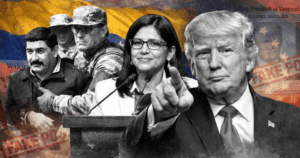JPMorgan Chase’s announcement to invest up to $10 billion in U.S. companies with direct links to national security marks more than a financial maneuver, it signals a shift in how private capital may align with geopolitical strategy.
From Capital Markets to Strategic Missions
The $10 billion commitment comes under JPMorgan’s broader Security and Resiliency Initiative, a 10‑year effort aimed at facilitating, financing and investing in critical sectors up to a total of $1.5 trillion. In practice, the bank will deploy this capital via direct equity and venture capital stakes in firms operating in four domains: supply chains and advanced manufacturing, defense and aerospace, energy resilience, and frontier technologies like AI and quantum computing. JPMorgan asserts that it had already planned to facilitate about $1 trillion in similar activities, and now plans to raise that by 50 percent.
Crucially, CEO Jamie Dimon insists the plan is commercial in nature, not a government-led initiative. He argues the U.S. has grown overly dependent on unreliable foreign supply sources for critical minerals and manufactured goods, vital to national defense. Dimon also frames the investment as a call to eliminate bureaucratic drag and align education systems with needed skills.
Strategic Implications for Markets and Policy
JPMorgan’s move effectively merges capital markets with national security goals. By anchoring investment in strategic industries, the bank is positioning itself as a gatekeeper of future “dual use” firms, those with both economic and defense relevance. That may shape who receives funding, at what terms, and on what timeline.
It also puts pressure on public policy to keep pace. To make such investments viable at scale, regulatory reforms, faster permitting, streamlined procurement, better support for R&D, become essential complements. JPMorgan acknowledges this; the bank says it will advocate for policies to accelerate progress. If private institutions begin offering capital contingent on policy alignment, future competitiveness may hinge on how well governments respond.
From a market standpoint, this could concentrate power in incumbent financial players. JPMorgan already serves 34,000 mid‑sized companies and over 90 percent of Fortune 500 firms. Its deep relationships give it both reach and influence over which sectors rise and which may be sidelined. Competing investment firms might struggle to woo deals in strategic areas unless they align with similar national security rationales.
Risks and Tensions Below the Surface
Yet this approach is not without tension. The boundary between private capital and state interest can blur. Critics may question whether investment decisions will favor political objectives or long‑term returns. The bank has emphasized that this is “100 percent commercia”, but the optics of private capital serving national strategy could invite scrutiny.
Moreover, by centering investment in a handful of “security” sectors, capital flows may distort innovation incentives elsewhere. Startups and enterprises working in less politically connected domains might find it harder to attract large institutional funding.
Finally, JPMorgan must manage execution: identifying genuinely strategic firms, deploying funds wisely, and avoiding overexposure to speculative or politically driven ventures. With a decade‑long horizon and investments in nascent areas like quantum computing, measurement of success remains uncertain.
A Final Note: New Terrain for Finance and Sovereignty
JPMorgan’s $10 billion commitment is not just headline grabbing, it demonstrates how major financial institutions may adopt roles once reserved for states. For policymakers, it presents both opportunity and challenge: the potential to harness private funds in strategic sectors, and the necessity to align regulation, education, and procurement to support this alignment. For markets, it may reshape which sectors draw large scale capital and who controls that flow. In a world where economic strength underpins security, the venture capital and banking industries may quietly become frontline instruments in national strategy.












